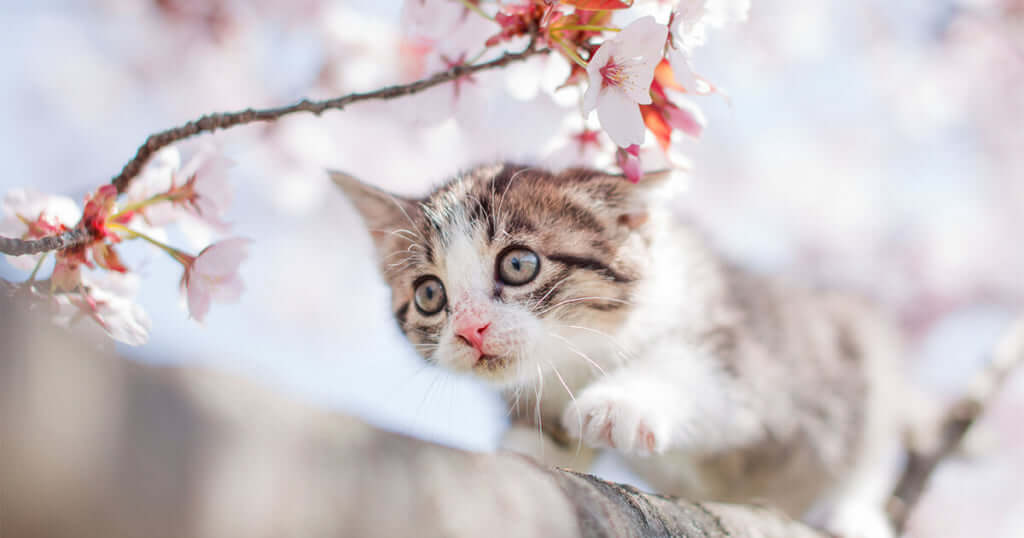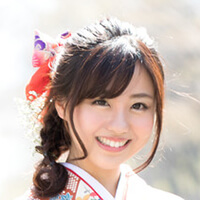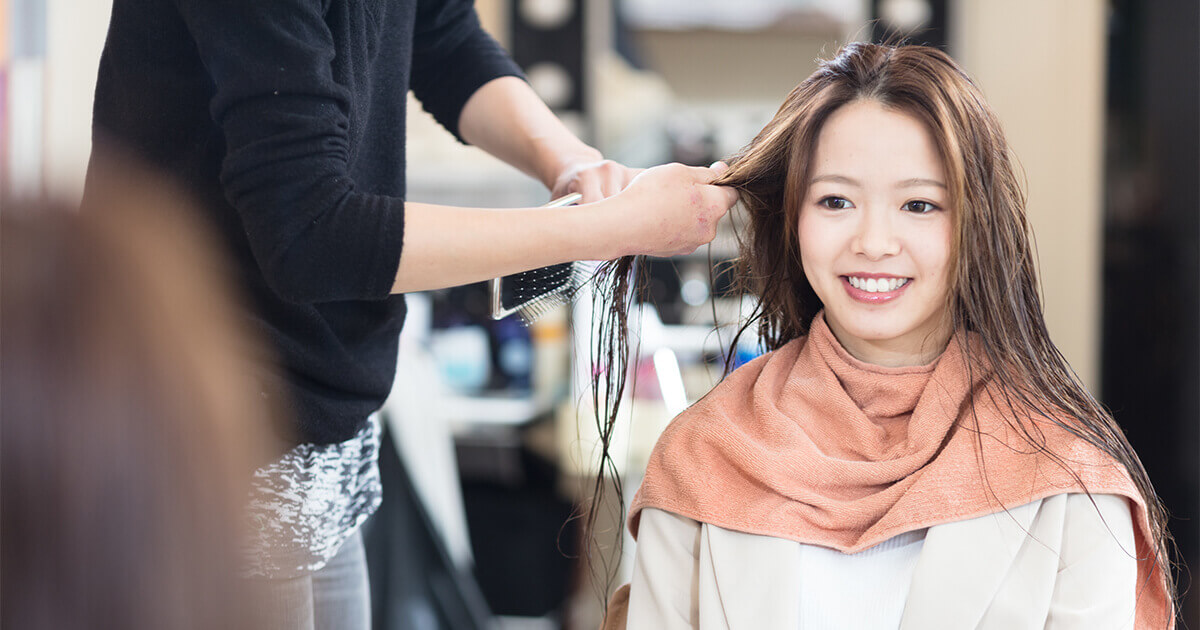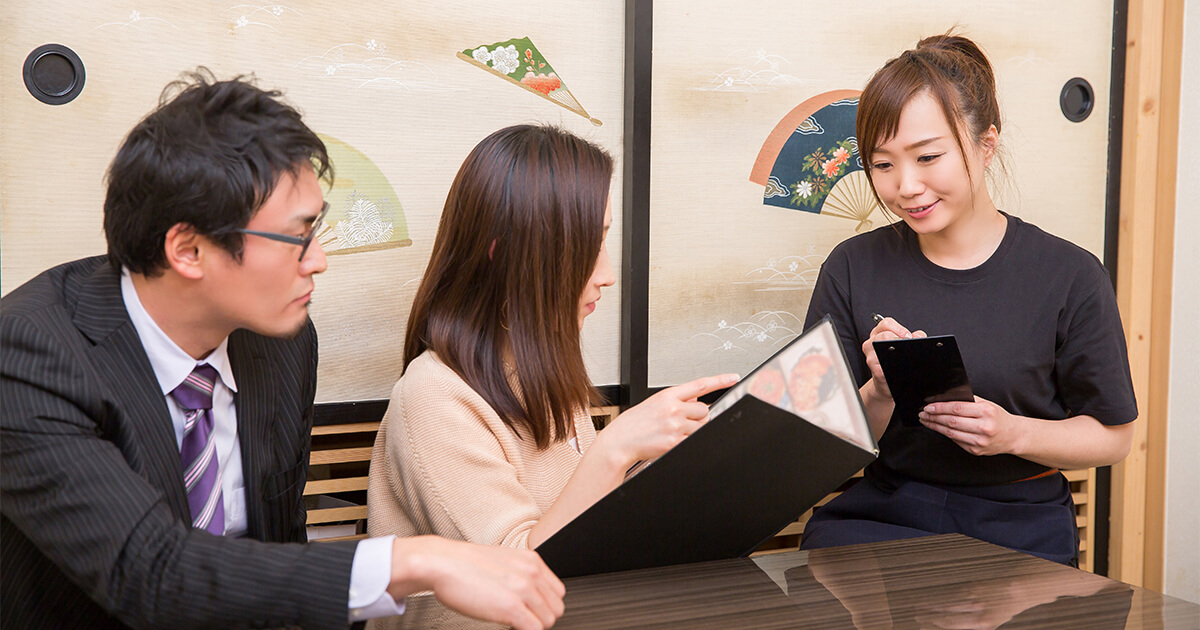
One of my Japanese friends thanked me for helping her and I wanted to say “you’re welcome”. How do I say it in Japanese?
Answer by Japanese teacher

(1) (いいえ、)どういたしまして。
(Iie,) dooitashimashite.
(No,) you’re welcome
Explanation
The word dooitashimashite means you’re welcome. This is a formal expression. You can say it with or without iie in front. iie literally means “no” but in this case, it means “no, it’s nothing”. If you have a close relationship with your friend, you can skip the dooitashimashite and just say iie.
Some other variations of iie are いや iya, いえ ie, and いえいえ ieie. Iya is used more often by men, ie is more casual, and ieie is used when you want to emphasize “it’s really nothing”.
Furthur Explanaiton
Added on 15th April 2019
Let us provide detailed explanation about the usage of the word according to different scenarios and people, instead of a standard reply of “you’re welcome” to “thank you”.
You have learnt that the reply to “arigatoo” (thank you) is “doo itashimashite” (you’re welcome). However, once you start living in Japan, you may find that “doo itashimashite” is rarely used.
This article summarizes all the questions you have regarding “doo itashimashite”.
Q1. We had dinner at a restaurant. After settling the bill, the cashier said “arigatoo gozaimashita”. Would it be inappropriate if I say “Doo itashimashite”?

It is natural to want to say “doo itashimashite” when we hear “arigatoo gozaimashita”. However, if you reply with “doo itashimashite”, it would sound like “of course, you should thank me”.
To show your appreciation for the delicious dinner, you can say “Gochisoosamadeshita” (thank you for the meal) or “Oishikattadesu” (it was delicious).
Q2. My Japanese friend, whom I am close with, laughed at me when I said “doo itashimashite”. Why is that so?

You did not mention under what situation did your friend laughed at you but we guess that it could be when you were learning Japanese.
If both of you are close friends, you would probably be speaking casually in plain form. Let me give an example.
Your Japanese friend: この漫画、サンキュ。 Kono manga, sankyuu. (Thanks for the comic.)
△ You: どういたしまして。 Doo itashimashite.
Your friend may laugh at you in the above example. This is because you suddenly turn formal with “doo itashimashite” in a casual conversation. Your friend may think “Why is he suddenly going formal with “doo itashimashite” when we are always so casual?” So how should you reply in this case?
Your Japanese friend: この漫画、サンキュ。Kono manga, sankyuu. (Thanks for the comic.)
◎ You: 面白かった? Omoshirokatta? Was it interesting?
How does that sound? You don’t have to purposely say “you are welcome”.
Q3. My Japanese wife gave me a funny look when I said “doo itashimashite”. Why is that so?

It was dinner time. You had the following conversation.
Your wife: ちょっとお塩(しお)とって。Chotto oshio totte. (Pass me the salt)
You: ん。N. (OK)
Your wife: ありがとう。Arigatoo. (Thanks)
△ You: どういたしまして。Doo itashimashite. (You are welcome)
Your wife: …
It is not wrong to say “doo itashimashite”.
However, as you have learnt, “doo itashimashite” is a humble expression because of the word “itasu”.
As seen in the examples of conversations with close friends and family members, your wife would be slightly surprised if you suddenly adopt formal expression and become pretentious in your otherwise casual conversation.
For a Japanese couple, when the spouse says “arigatoo”, the other party would either keep quiet or reply “Un”. If a similar situation occurs again, try saying “Un”.
Q4. When I reply “Doo itashimashite” to my customer who said thanks to me, I was later scolded by my senior at work for being rude. Isn’t “Doo itashimashite” a humble expression? Why was it rude then?

For your question, did this customer buy products from your company? Or did he choose to work with your company out of many companies?
If so, your senior may think that “Our customer is paying us to do the job. So we should be thanking him instead. It is rude for us to receive his thanks as a matter of fact.”
In that case, you can reply with “Kochirakoso itsumo arigatoo gozaimasu” (We should be thanking you for your continuous support).
Q5. Can “doo itashimashite” be used for anyone?

The answer is “no”. In a same scenario, “doo itashimashite” may or may not be appropriate, depending on the person to which this word is used. Let’s look at the examples below.
For colleagues
You have a car and you gave your colleague a lift to the train station. When he got off the car, he said “doomo arigatoo”. How would you reply him?
Your colleague: どうもありがとう。Doomo arigatoo. (Thank you!)
◎ You: どういたしまして。またあした。Doo itashimashite. Mata ashita. (You are welcome. See ya.)
This sounds natural.
For friends
If the other person is your friend, how would it be like?
Your friend: どうもありがとう。Doomo arigatoo. (Thank you!)
◎ You: どういたしまして。またあした。Doo itashimashite. Mata ashita. (You are welcome. See ya.)
This is also natural.
For family members
Now let’s say the other person is your family member. If your wife says “arigatoo” to you,
Your wife: どうもありがとう。Doomo arigatoo. (Thank you!)
〇You: どういたしまして。Doo itashimashite. (You are welcome.)
It is not wrong to use it but few or no Japanese couple would actually use “arigatoo” and “doo itashimashite” like in the above example. In fact, many people would think that it is embarrassing to go to the trouble to say “doo itashimashite” to a family member and that it is the most natural thing to give a family member a lift.
Your wife: どうもありがとう。Doomo arigatoo. (Thank you!)
◎You: いっていらっしゃい。Itteirassyai. (See you.)
Saying “itteirassyai” would be more natural.
For superior
If the other person is your boss or superior, how would it be like?
Your boss: どうもありがとう。Doomo arigatoo. (Thank you!)
× You: どういたしまして。またあした。Doo itashimashite. Mata ashita. (You are welcome. See ya.)
If I were your boss, I would feel a bit offended to hear such a reply. In other words, “doo itashimashite” is a difficult expression to use for superiors. Why is that so?
This may have to do with the origin of the word. Let’s move on to the next question.
Q6. What is the meaning of “doo itashimashite”?

The word “doo itashimashite” consists of “doo”, “itasu”, “masu”, and “te”. “Itasu” is the humble word for “suru” (to do), so that makes it a humble expression.
The last “te” has the meaning of a rhetorical question. If we translate “doo itashimashite” into modern Japanese, it means “what have I done for you? (Nothing at all)” By adding “te” at the end, it negates what the other party has said before.
This means that “doo itashimashite” is an expression to negate or deny the appreciation of thanks by the other party. As this expression negates the appreciation of thanks from your boss, some people would think that it would be rude of you to do so.
Q7. How would you reply when you are thanked by your superior?

As mentioned above, “doo itashimashite” is an expression to strongly negate or deny the appreciation of thanks by the other party. As such, some people consider it a rude expression. In that case, how should we reply?
For superior
Your boss: どうもありがとう。Doomo arigatoo. (Thank you!)
◎You: どういたしまして。またあした。Doo itashimashite. (Mata ashita.)
いつでもどうぞ。Itsudemo doozo. Anytime, please.
I may reply in the above manner. In other words, try to use a positive expression rather than a negative one.
For clients
Let’s think a bit deeper. If the other party is your client, what would you do? If the relationship is already established and you are on close terms with your client, you may answer as below:
Your familiar client: どうもありがとう。Doomo arigatoo. (Thank you!)
◎You: いつでもどうぞ。Itsudemo doozo. (Anytime, please.)
This reply is similar to that for your boss.
However, if this is your first time meeting the client or he has a very high social position, you may want to reply as below:
Your client: どうもありがとう。Doomo arigatoo. (Thank you!)
◎You: いつでもお申し付けください。Itsudemo omooshitsuke kudasai. (Please tell me anytime.)
To reply to “arigatoo” from a superior, we change the negative expression to positive, and adjust the speech to keigo (honorific expression) to put a distance between yourself and the other party.
Q8. Since “doo itashimashite” is not an “all mighty” expression, why do people think that it is the standard reply to “thanks”?

When we were young, we are taught that “you are welcome” is the reply to “thank you”. However, how many times did you actually use “you are welcome” in real life situations?
To reply to thanks, we use other expressions more often, such as “No problem”, “Don’t mention it!”, “My pleasure” and “I am happy to help”. Similarly, for convenience of teaching Japanese, “doo itashimashite” becomes the standard reply to thanks without considering the actual and varied situations where it is applicable.
“Doo itashimashite” is a simple expression but it has a lot of deep meanings to it.
You may have made several mistakes using the word before but I hope this article will now give your new insights to using the word correctly.
Do not be afraid of making mistakes and enjoy communicating in Japanese.



